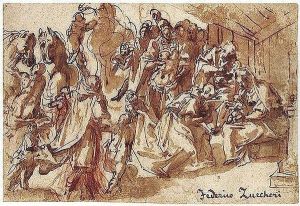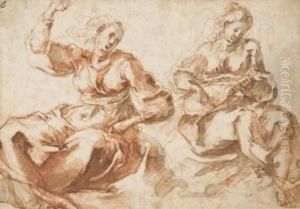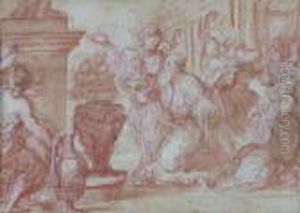Cesare Pollini Paintings
Cesare Pollini was an Italian musician, composer, and theorist who lived during the late Renaissance and early Baroque periods. Born in 1560 in Padua, then part of the Republic of Venice, Pollini was active at a time when music was undergoing significant changes. The transition from the Renaissance to the Baroque style brought about new musical forms and an increased emphasis on emotion and expressiveness. Pollini's life and work are not as widely documented as some of his contemporaries, and as a result, his contributions are not as well-known to the general public.
Pollini studied at the University of Padua, where he also later worked. He is primarily remembered for his theoretical work, 'Prattica di Musica', published in 1601. This treatise provides a valuable insight into the performance practices and musical thought of the time. It covers a wide range of topics, including musical modes, counterpoint, and the rules of composition. The 'Prattica di Musica' is often cited by music historians for its detailed description of late Renaissance music theory.
As a composer, Pollini wrote a variety of works, including sacred music such as motets and secular pieces like madrigals. His compositions reflect the stylistic transition of the period, featuring characteristics of both the Renaissance polyphony and the emerging Baroque style. However, much of his music has been lost over time, and what remains may not fully represent the scope of his output.
Pollini's contributions extend beyond his theoretical writings and compositions. He was also involved in the musical life of his city, contributing to the rich cultural environment of Padua. He died in 1630, having lived through a dynamic period in the history of Western music. Pollini's legacy is that of a scholar and educator who helped disseminate the complex ideas of music theory during a pivotal time in the evolution of Western musical traditions.


